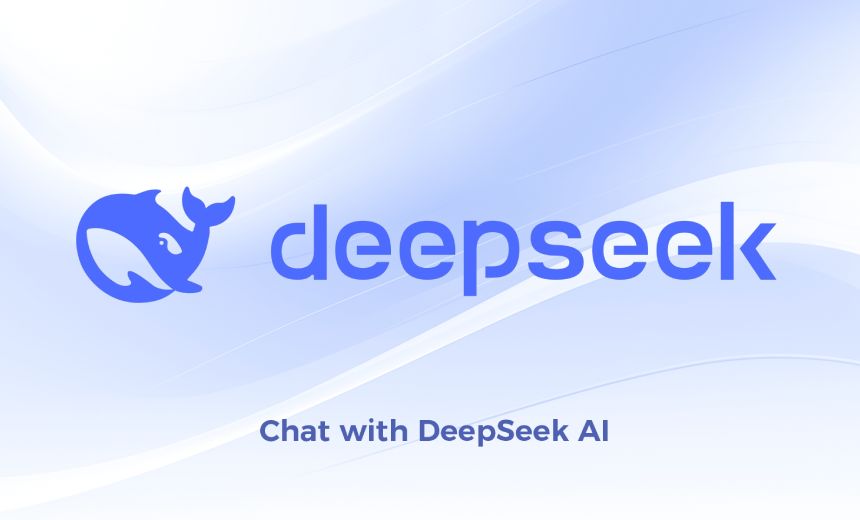
Artificial Intelligence (AI) is changing education while making finding out more accessible but likewise triggering arguments on its effect.
While students hail AI tools like ChatGPT for boosting their learning experience, speakers are raising issues about the growing reliance on AI, forums.cgb.designknights.com which they argue fosters laziness and undermines scholastic integrity, specifically with many trainees not able to protect their projects or given works.
Prof. Isaac Nwaogwugwu, bphomesteading.com a lecturer at the University of Lagos, in an interview with Nairametrics, expressed disappointment over the growing reliance on AI-generated responses amongst students recounting a current experience he had.
RelatedStories
Avoid sharing individual info that can recognize you with AI tools- Expert cautions
Chinese AI app DeepSeek stimulates global tech selloff, difficulties U.S. AI dominance
"I offered a project to my MBA trainees, and out of over 100 trainees, about 40% submitted the exact very same answers. These students did not even understand each other, but they all used the very same AI tool to generate their actions," he said.
He noted that this pattern prevails amongst both undergraduate and postgraduate trainees however is especially concerning in part-time and range knowing programs.
"AI is a major challenge when it comes to tasks. Many trainees no longer believe critically-they just browse the web, generate responses, and send," he included.
Surprisingly, some speakers are also accused of over-relying on AI, setting a cycle where both educators and trainees turn to AI for convenience instead of intellectual rigor.

This dispute raises crucial concerns about the function of AI in scholastic stability and student development.
According to a UNESCO report, while ChatGPT reached 100 million monthly active users in January 2023, only one nation had launched regulations on generative AI since July 2023.
Since December 2024, ChatGPT had over 300 million individuals using the AI chatbot weekly and 1 billion messages sent out every day worldwide.
Decline of scholastic rigor
University speakers are progressively concerned about students sending AI-generated tasks without truly comprehending the content.
Dr. Felix Echekoba, a speaker at Nnamdi Azikiwe University, revealed his concerns to Nairametrics about students increasingly depending on ChatGPT, photorum.eclat-mauve.fr just to have problem with addressing basic questions when tested.
"Many students copy from ChatGPT and submit sleek projects, but when asked fundamental concerns, they go blank. It's frustrating since education is about finding out, not just passing courses," he said.
- Prof. Nwaogwugwu explained that the increasing number of first-class graduates can not be totally attributed to AI but confessed that even high-performing students use these tools.
"A first-class student is a first-rate student, AI or not, but that doesn't indicate they do not cheat. The advantages of AI might be peripheral, but it is making trainees reliant and less analytical," he stated.
- Another speaker, Dr. Ereke, from Ebonyi State University, raised a various issue that some lecturers themselves are guilty of the same practice.
"It's not simply students using AI lazily. Some speakers, out of their own laziness, generate lesson notes, course details, marking schemes, and even examination concerns with AI without evaluating them. Students in turn use AI to produce responses. It's a cycle of laziness and it is killing real knowing," he regreted.
Students' point of views on use
Students, on the other hand, oke.zone say AI has improved their learning experience by making scholastic materials more easy to understand and available.
- Eniola Arowosafe, a 300-level Business Administration student at Unilag, shared how AI has actually substantially aided her learning by breaking down complex terms and providing summaries of lengthy texts.
"AI helped me comprehend things more easily, especially when dealing with intricate subjects," she discussed.
However, she recalled a circumstances when she used AI to send her job, just for her speaker to right away acknowledge that it was produced by ChatGPT and reject it. Eniola noted that it was a good-bad result.
- Bryan Okwuba, who just recently finished with a first-class degree in Pharmacy Technology from the University of Lagos, securely believes that his scholastic success wasn't due to any AI tool. He associates his outstanding grades to actively appealing by asking questions and focusing on areas that lecturers stress in class, as they are typically reflected in exam concerns.
"It's everything about being present, taking note, and using the wealth of knowledge shared by my coworkers," he said,
- Tunde Awoshita, a final-year marketing student at UNIZIK, confesses to periodically copying directly from ChatGPT when dealing with multiple due dates.
"To be honest, there are times I copy directly from ChatGPT when I have multiple due dates, and I know I'm guilty of that, most times the speakers don't get to review them, however AI has also assisted me find out much faster."
Balancing AI's role in education

Experts believe the option lies in AI literacy; teaching students and lecturers how to use AI as a learning aid rather than a faster way.
- Minister of Education, Dr. Tunji Alausa, highlighted the integration of AI into Nigeria's education system, worrying the importance of a balanced method that preserves human involvement while utilizing AI to improve discovering results.
"As we browse the quickly progressing landscape of Artificial Intelligence (AI), it is essential that we prioritise human agency in education. We must ensure that AI enhances, instead of replaces, teachers' essential role in shaping young minds," he stated
Dorcas Akintade, a cybersecurity improvement expert, dealt with growing issues regarding using artificial intelligence (AI) tools such as ChatGPT and their prospective threats to the instructional system.
- She acknowledged the benefits of AI, however, highlighted the requirement for care in its use.
- Akintade highlighted the increasing resistance among teachers and schools towards integrating AI tools in finding out environments. She recognized two main factors why AI tools are dissuaded in instructional settings: security threats and plagiarism. She discussed that AI tools like ChatGPT are trained to react based on user interactions, which may not align with the expectations of educators.
"It is not looking at it as a tutor," Akintade said, discussing that AI does not deal with particular mentor techniques.

Plagiarism is another concern, as AI pulls from existing data, frequently without proper attribution
"A lot of people need to understand, like I stated, this is information that has been trained on. It is not simply bringing things out from the sky. It's bringing info that some other individuals are fed into it, which in essence suggests that is another individual's paperwork," she cautioned.
- Additionally, Akintade highlighted an early problem in AI development known as "hallucination," where AI tools would produce information that was not factual.
"Hallucination suggested that it was bringing out info from the air. If ChatGPT could not get that details from you, it was going to make one up," she discussed.
She suggested "grounding" AI by supplying it with specific details to prevent such mistakes.
Navigating AI in Education
Akintade argued that banning AI tools outright is not the option, especially when AI presents an opportunity to leapfrog standard academic approaches.
- She thinks that consistently enhancing key details helps people remember and prevent making errors when faced with obstacles.
"Immersion brings conversion. When you tell people the exact same thing over and over once again, when they will make the errors, then they'll remember."
She also empasized the need for clear policies and prazskypantheon.cz treatments within schools, keeping in mind that lots of schools ought to attend to individuals and procedure aspects of this usage.
- Prof. Nwaogwugwu has resorted to in-class assignments and tests to counter AI-driven scholastic dishonesty.
"Now, I mainly use tasks to guarantee trainees offer initial work." However, he acknowledged that handling large classes makes this technique difficult.
"If you set intricate questions, trainees will not be able to utilize AI to get direct responses," he explained.
He stressed the requirement for universities to train lecturers on crafting exam concerns that AI can not quickly fix while acknowledging that some lecturers struggle to counter AI abuse due to an absence of technological awareness. "Some lecturers are analogue," he stated.
- Nigeria released a draft National AI Strategy in August 2024, focusing on ethical AI advancement with fairness, transparency, accountability, bphomesteading.com and personal privacy at its core.
- UNESCO in a report requires the regulation of AI in education, advising organizations to examine algorithms, data, and outputs of generative AI tools to guarantee they fulfill ethical requirements, secure user information, galgbtqhistoryproject.org and filter unsuitable content.
- It worries the need to assess the long-lasting effect of AI on vital abilities like thinking and imagination while creating policies that line up with ethical structures. Additionally, UNESCO recommends implementing age restrictions for GenAI use to safeguard more youthful students and protect susceptible groups.
- For federal governments, it encouraged adopting a coordinated national technique to regulating GenAI, including developing oversight bodies and lining up policies with existing information protection and personal privacy laws. It highlights evaluating AI dangers, imposing more stringent guidelines for high-risk applications, and ensuring national information ownership.


